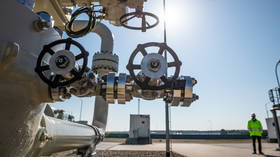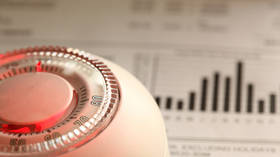Russia has stronger nerves than EU for energy standoff – Moscow

Moscow is ready for a vigorous standoff in the energy sector if the EU goes ahead with its plans to abandon Russian gas, oil and coal, a high-ranking Foreign Ministry official has said.
“Russia remains a reliable supplier [of energy resources]; a world-class guarantor of energy security,” Nikolay Kobrinets, who heads the Department of European Cooperation, told Interfax on Saturday.
“We value this reputation, but we are ready for a harsh standoff in the energy sector, if necessary,” he said.
The EU “will definitely not benefit” from such confrontation because “we [Russia] have a greater margin of safety and stronger nerves,” insisted the Foreign Ministry official.
Earlier this week, European Commission President Ursula von der Leyen complained that the EU was “too dependent on Russian fossil fuels and, in particular, gas.” She promised to present a plan by mid-May that would allow the bloc to cease using Russian fossil fuels by 2027 by optimizing and decarbonizing the energy market.
Von der Leyen’s statement was made amid an ongoing Russian offensive in Ukraine, which was met with widespread international condemnation and draconian sanctions against Moscow. The Kremlin insists that it had to send troops into the neighboring country to “demilitarize” and “denazify” the Kiev government, and to prevent what it called the “genocide” perpetrated by Ukraine against civilians in the breakaway republics of Donetsk and Lugansk.
Kobrinets noted that, according to the European Commission’s own data, the EU gets 45% of gas, 25% of oil and 45% of coal from Russia. “So Brussels has to understand its vulnerability,” he pointed out.
However, judging by the statements coming from the bloc, it intends to achieve energy independence from Russia “at any price,” he said. And this price “will have to be paid not by the top EU bureaucrats, but by ordinary European taxpayers.”
According to Kobrinets, the plans by Brussels “aren’t too rational” from an economic point of view. “There’s already turbulence on the world energy markets, if not panic.”
“It’s unknown how high the prices will skyrocket. But it’s already clear that the EU would have to pay triple prices for gas, oil and electricity, if not more. But it’s their choice,” he said.













